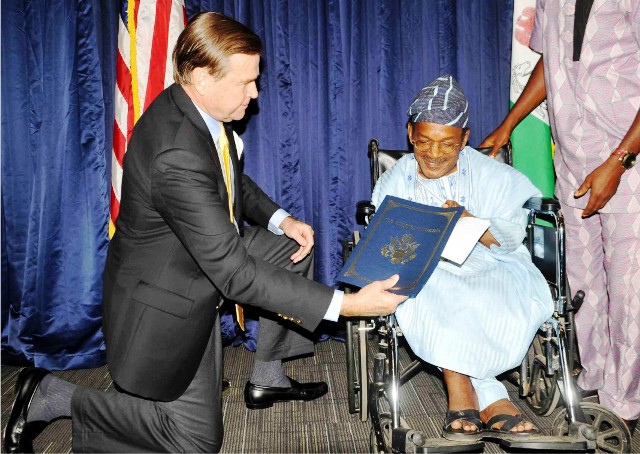Business
Branch Closures Worries Bank Customers In Ahoada

Banking operations at the branch of a first generation bank in Ahoada, headquarters of Ahoada East Local Government Area of Rivers State, are being overstretched following panic branch closures according to The Tide’s findings.
The development, our correspondent gathered was occasioned by the closures of ECO Bank branches in Omoku, Ahoada and Elele, following the recent kidnap and subsequent release of its Omoku branch manager.
The Tide also gathered that the situation was sequel t the closure of another prominent bank office in Ahoada more than a year ago.
Already, some bank customers who spoke to The Tide on the development expressed fear of a possible collapse of business activities in Ahoada in particular and the Orashi region as a whole.
They further appealed to other banks to set up branches at Ahoada in order to ameliorate the plight of the banking public in the area.
Meanwhile, efforts to speak with the branch manager of the said first generation bank in Ahoada was not successful as he was said to be out of town on an official assignment.
However, a competent source at the bank who asked not to be named acknowledged the fact that services at the bank are being over stretched.
According to him, customers besiege the ATMs as early as 6.00am on daily basis in order to make withdrawal.
“As you came in, I hope you saw the crowd at the ATM area, infact we are trying to do our best to satisfy their needs, he said.
The Tide reports that in the whole of the Orashi region which comprise Abua/Odual, Ogba/Egbema/ Ndoni, Ahoada East and Ahoada West local government areas, only Omoku and Ahoada have bank branches.
However, Omoku that was reputed to have almost all the banks branches has lost that position as some left at the heat of the cult activities, long before the ECO Bank saga.
And Ahoada that had three banks is now left with only one.
Business
NCDMB, Jake Riley Empower 250 Youths On Vocational Skills

Business
NUJ Partners RSIRS On New Tax Law Education

Transport
Nigeria Rates 7th For Visa Application To France —–Schengen Visa

-

 Politics5 days ago
Politics5 days agoPFN Rejects Call For INEC Chairman’s Removal Over Genocide Comments
-

 Rivers5 days ago
Rivers5 days agoFasthire, PHCCIMA, CIPM Host CareerFest 2026 In PH
-

 Sports5 days ago
Sports5 days agoEnekwechi wins Orlen Cup in season opener
-

 Politics5 days ago
Politics5 days agoHoodlums Disrupt LP-ADC Defection Event In Lagos
-

 Sports5 days ago
Sports5 days agoSimba open Nwabali talks
-

 Sports5 days ago
Sports5 days agoFalconets, Senegalese Lionesses arrive Ibadan for qualifier
-

 Politics5 days ago
Politics5 days agoRemoval From INEC’s Portal, Abure-Led LP Faction Mulls Legal Action
-

 Niger Delta5 days ago
Niger Delta5 days agoTinubu, Jonathan, Diri Pay Last Respect To Ewhrudjakpo

